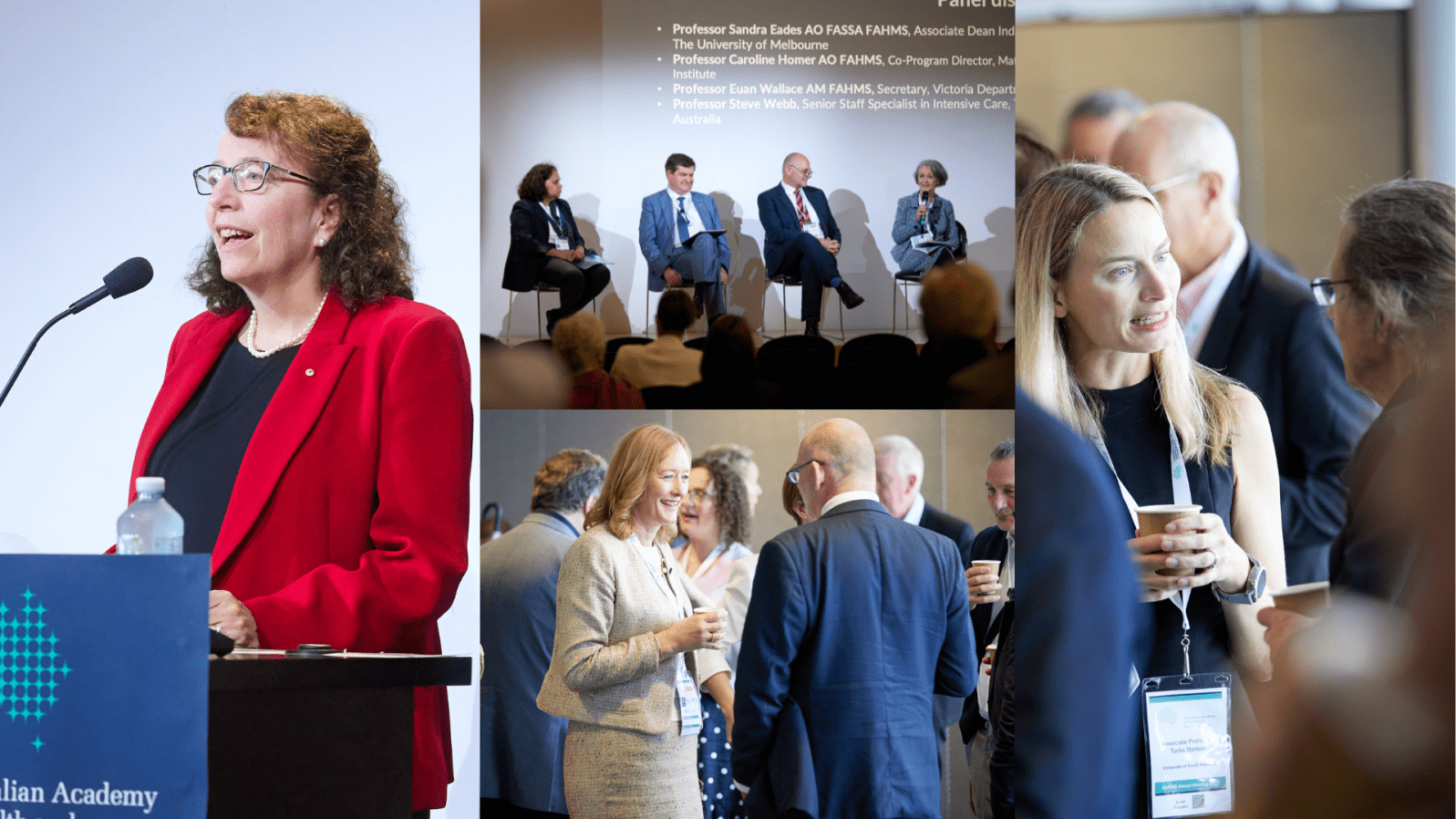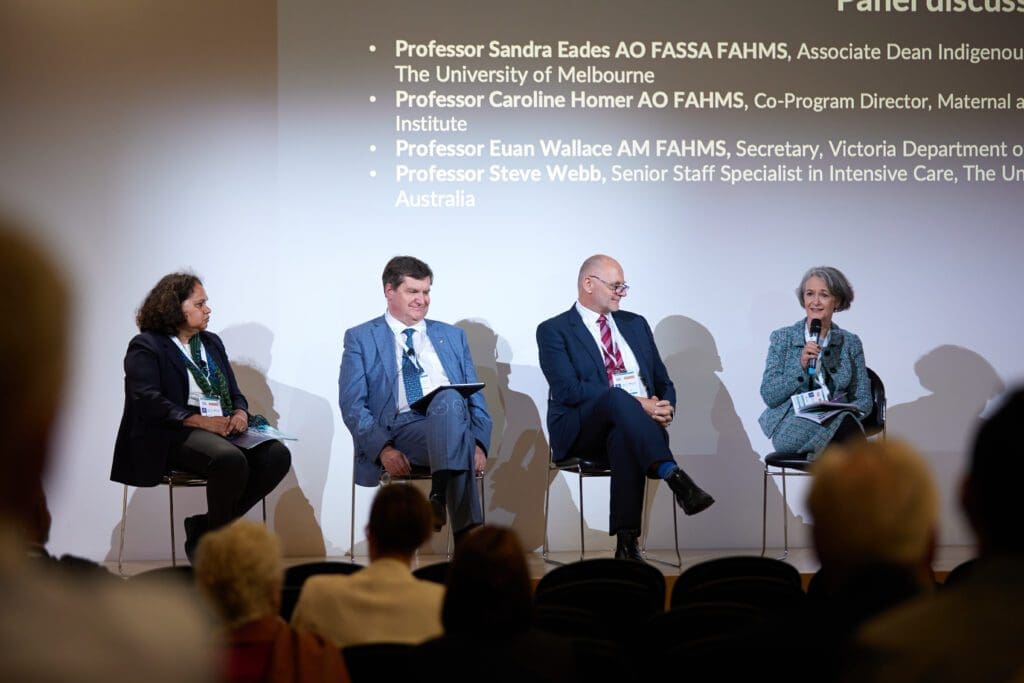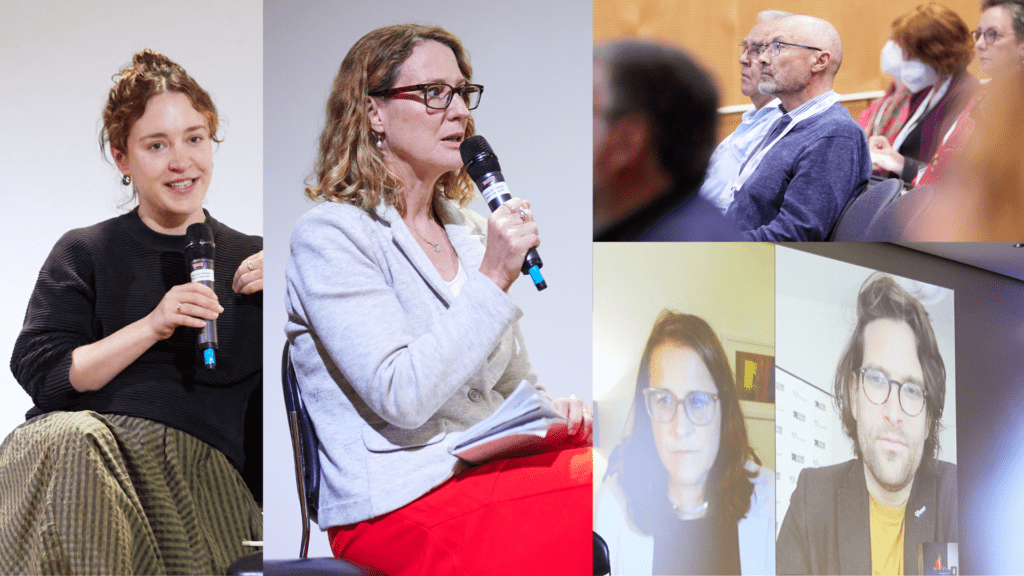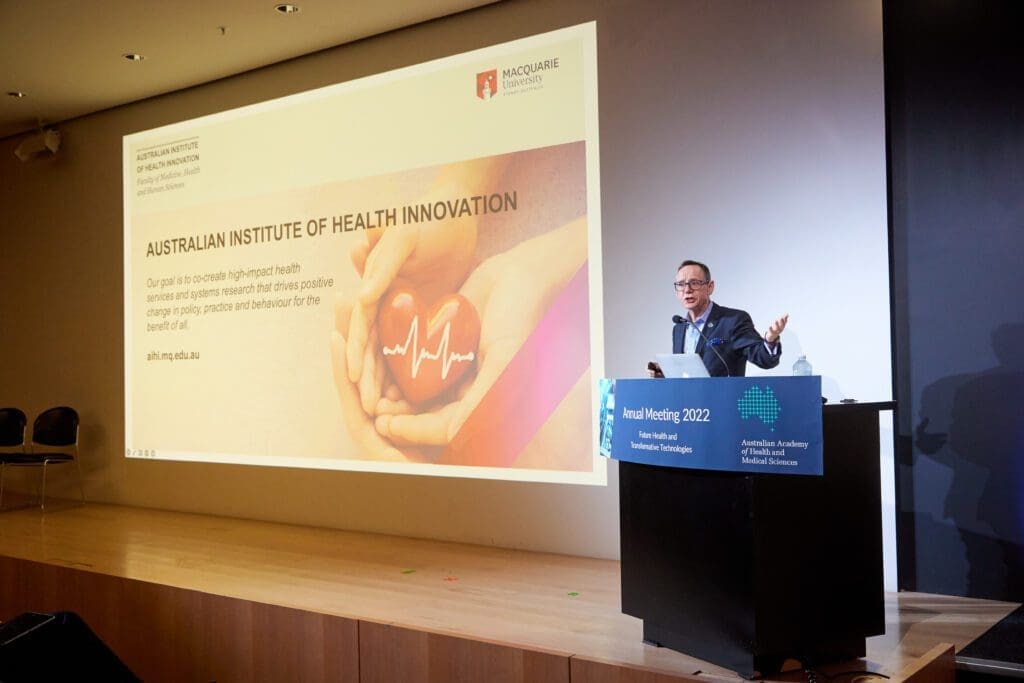Misinformation in health, new technologies in medical research, and a vision for integrating research in the health system – these were just some of the key themes that took centre stage at the recent Australian Academy of Health and Medical Sciences annual meeting.
Held at WEHI in Melbourne, AAHMS 2022 was the Academy’s first face-to-face annual meeting in three years and an opportunity to explore some of the biggest issues in health and medical sciences, with a focus on future health and transformative technologies. We also welcomed and celebrated our newest Fellows at our Gala Dinner.
Watch recordings of all presentations in our video library or read on for event highlights.
Research and innovation as core functions of the health system
One of the meeting’s highlights was the official launch of our policy report, Research and innovation as core functions in transforming the health system: A vision for the future of health in Australia.
The report is the result of more than a year of evidence collection, consultation with more than 260 individuals, and deliberation from our expert working group on why and how Australia can better integrate research into the health system.
The report sets out a three-year plan to achieve our vision of making research and innovation core functions of the Australian health system, with 14 recommendations – including five priority actions. You can download the full report or watch a recording of the launch, presented by working group chair, Professor Christina Mitchell AO FAHMS, followed by a panel discussion with Professor Sandra Eades AO FASSA FAHMS, Professor Caroline Homer AO FAHMS, Professor Euan Wallace AM FAHMS, and Professor Steve Webb FAHMS.
"This new media landscape is weaponised, low trust and it’s networked.”
- Professor Claire Wardle
Communicating health in the new media landscape
Health communication can sometimes seem like a battleground, with misinformation and distrust rampant in the digital age. In her keynote presentation, Brown University Professor Claire Wardle highlighted the need for health professionals to build trust, authenticity and take memes seriously.
While health and science misinformation has been a global issue for a long time, Professor Wardle said the availability of highly emotive, visual and sharable content online fuelled misinformation. “This new media landscape is weaponised, low trust and it’s networked,” she explained.
While misinformation affects all generations, there is a “big generational gap” between those who have grown up online and those who haven’t. What’s more, some of the most popular social media platforms among younger generations, such as TikTok, preference personal stories, are hard to monitor, and have personalised algorithms– making it difficult for users to easily ascertain what information is accurate.
Professor Wardle suggests that health communicators consider how to communicate in the “new communication ecosystem” by creating content that is visual, short and shareable, in addition to more traditional long-form content.
Watch Professor Wardle’s full presentation here, and the panel session featuring VicHealth CEO Dr Sandro Demaio, ABC technology journalist Ariel Bogle, and NHMRC Principal Research Fellow and Director Sydney Health Literacy Lab, University of Sydney, Professor Kirsten McCaffery.
What will health systems look like in the future?
Delivering effective, scalable and sustainable initiatives that benefit the health and wellbeing of the whole population require changes to how and where we work.
Professor Jeffrey Braithwaite FAHMS is Founding Director of the Australian Institute of Health Innovation at Macquarie University and a leading health services and systems researcher with an international reputation for his work investigating and contributing to systems improvement.
In his keynote presentation, he spoke about the current issues in healthcare, as well as potential solutions to create high-performing healthcare systems.
Currently, roughly only 60% of care is in line with evidence or consensus-based guidelines, with about 30% of health care waste of some kind, and around 10% of patients harmed when receiving care. Professor Braithwaite said alarmingly, these numbers haven’t changed in years.
Examining high-performing hospitals and health systems, Professor Braithwaite highlighted several trends shaping health systems of the future, including:
- Sustainable health systems
- Harnessing new data from genomics
- Emerging technologies
- Global demographic dynamics
- New models of care
He pointed to the need to make health workplaces efficient, constantly improving, evidence-based and technologically-savvy. Trends for the future that may help shift the dial include integrated care rather than fragmented and siloed care, preventative rather than acute care, and training a fit-for-purpose workforce.
Watch Professor Braithwaite’s full presentation here, as well as a panel session on future health systems featuring Professor Russel Gruen FAHMS, Professor Anne Kavanagh FASSA FAHMS, Associate Professor Jo-Anne Manski-Nankervis, and Professor James Ward.




